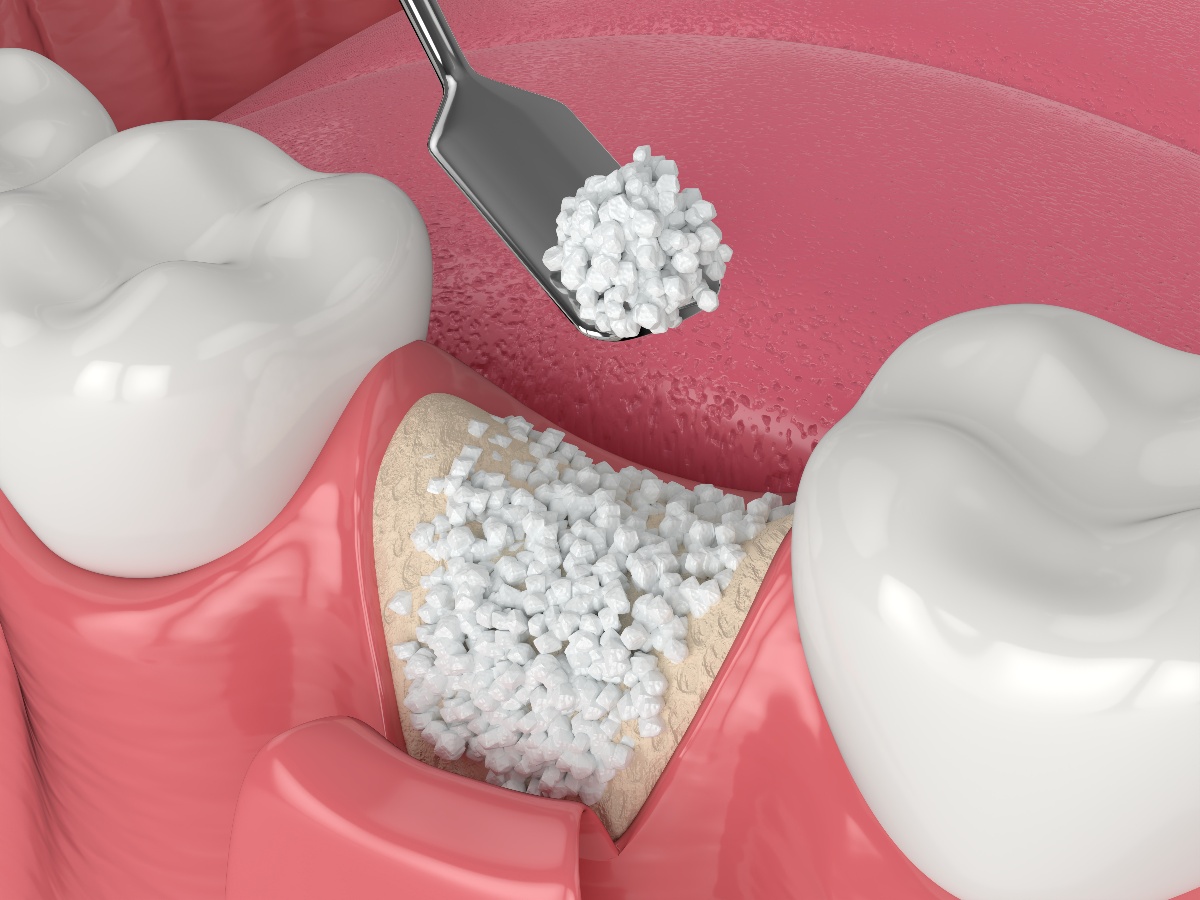One of the common concerns patients have about dental implants is how they feel. It might seem difficult to believe that a titanium post implanted in your jawbone could feel natural. Continue reading to learn more about the benefits of implants and discover if they feel natural.
Advantages of Replacing Missing Teeth
In the next fifteen years, 200 million people in the United States will be missing one or more teeth. The most common causes of tooth loss include:
- Trauma.
- Tooth decay.
- Periodontal disease.
- Cancer treatments.
- Cracks and fractures due to worn teeth.
Fortunately, several options exist to replace missing teeth, such as fixed dental bridges, complete dentures, partial dentures, and implant-supported prostheses. While esthetics is an important reason to replace front teeth, there are many advantages to replacing any tooth you lose. These advantages include the following:
- Keeping your natural teeth straight. If you leave a gap in place of a tooth, the surrounding teeth shift. This can affect your appearance and your bite.
- Allowing you to eat a healthy diet. Tooth loss in some individuals leads to poor nutrient intake.
- Preventing speaking difficulties. Your teeth, lips, tongue, and cheeks function together to enable proper phonation. Losing one or more teeth can create speech difficulties that dental implants can prevent.
- Restoring your smile. One of the chief concerns after tooth loss is its effect on your smile. This can diminish your self-confidence and quality of life. Dental implants are often chosen because of their superior ability to give you the smile that you want.
How Long Do Dental Implants Last?
The number of implants dentists place annually continues to increase due to several factors. However, without confidence in their long-term success, most patients would choose another option to replace their missing teeth. Most studies find implant survival rates well over ninety percent, and some as high as ninety-eight percent.
It would be a mistake to assume that once you have an implant, you have no responsibility for its success or failure. Several factors play a role in ensuring the success of your implant, such as:
- Bone health. During the implant consultation phase, the health of your jawbone will be thoroughly evaluated with a physical exam, dental X-rays, and possibly, a 3D CAT scan. Dental implant success depends on an adequate amount of disease-free bone that can fuse with the implant. If you have low bone density, your dentist may recommend a bone grafting procedure before implant placement.
- Nutrition. Your diet has the most impact on success immediately after implant placement. Eating certain kinds of foods, such as those that are crunchy, tough, or sticky, can lead to failure of implant osseointegration. However, proper nutrition after implant healing can help ensure that you maintain healthy gums and bones for the long-term success of your implant.
- Oral hygiene. Preventing plaque buildup remains crucial to your oral health after receiving implants. The leading cause of dental implant failure is inflammation and infection in the bone around the implant. This typically begins if plaque accumulates at the junction of your gum and the implant. Gentle brushing with a soft-bristled toothbrush and flossing are essential to retaining implants and natural teeth.
- Smoking. Smokers typically experience more complications, such as delayed healing, infections, and failure of osseointegration. Smokers should consider stopping well in advance of implant surgery to decrease the risk of implant failure.
- General health. Several systemic health factors can affect implant success. These include high blood glucose, a history of radiation therapy to the head, osteoporosis, a compromised immune system, hypertension, bleeding disorders, and congestive heart failure.
Benefits of Dental Implants
Dental implants are the only tooth replacement option that replaces the root and crown of a missing tooth. After years of clinical and laboratory research, dentists have virtually perfected the materials and techniques that promote the osseointegration of implants. As a result, patients can now enjoy the many benefits of replacing a tooth with a restoration that is permanently fused to the jaw bone. These benefits include:
- Clear speech. Some tooth replacement options can make it difficult to say certain words or sounds. Dental implants, however, can restore your ability to speak clearly since the precise location, size, and contours of your natural teeth are restored.
- Rehabilitated mastication. A significant functional impairment of tooth loss is the diminished ability to eat certain foods. Dental implants effectively restore chewing forces and give you the confidence to enjoy all your favorite foods.
- Simple maintenance. You will not need to learn any special techniques or use new devices to maintain your implants. You simply brush and floss implants like you do natural teeth.
- Preservation of facial structure. The bone around your teeth plays a crucial role in your appearance since this bone supports your facial muscles. Studies show that when you lose this bone, the height of your face is reduced. Additionally, bone and tooth loss can lead to premature wrinkling and aging. Dental implants preserve bone and help you maintain a more youthful appearance.
Do Dental Implants Feel Natural?
With all the benefits of implants, including their natural appearance, you may have a question about how an implant feels. There are several things to consider in answering this question, such as:
- Comfort. A dental implant should feel absolutely comfortable after it heals. If the implant has fused with the bone, there should be no pain when chewing. You can, however, have gum soreness around an implant if plaque accumulates due to inadequate oral hygiene.
- Temperature sensation. When you eat or drink something extremely hot or cold, your teeth feel this because of the dental pulp. The pulp inside a natural tooth can feel extreme temperature changes. Any temperature sensation you feel with an implant comes from the gum tissue. The gum tissue is not as sensitive as the pulp, but it provides a natural feeling to temperature.
- Osseointegration. The fusion of the implant to the surrounding bone is one of the keys to an implant feeling natural. One way to ensure osseointegration is to closely follow the instructions you are given on the day of implant surgery.
- Hygiene. After osseointegration, it is essential to maintain this healthy fusion by preventing periodontal disease. Brushing twice daily with a soft-bristled brush, flossing at least once daily, and regular dental checkups help maintain a healthy implant.
As long as the implant remains fused with the bone and you maintain healthy gums, your implant will feel very close to your natural teeth. However, just like your natural teeth, you will notice discomfort and an unnatural feeling if your gums become inflamed or infected.
Schedule an Appointment
Contact Palmetto Dental Arts to learn more about how we can give you the smile you want by replacing missing teeth in one day. Whether you need one or all of your teeth replaced, we have options that can look and feel like your natural teeth.






